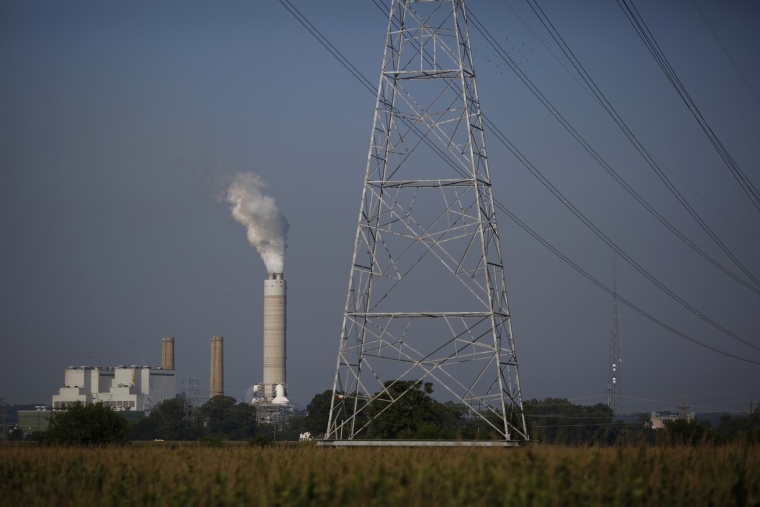St. Louis became the 47th American city to set a goal of getting all of its electricity from clean, noncarbon sources with a vote by local lawmakers Friday — a significant watershed given its long-standing ties to the fossil fuel industry.
The unanimous vote by the Board of Aldermen commits the city to transition to solar, wind and other renewable energy sources by 2035. The city will assemble a group — made up of workers, environmentalists, business people, utility representatives and others — to draw up a plan by December 2018 for reaching the benchmark.
The 100 percent clean energy goal has been set by many cities that have already made substantial progress in obtaining power from sources other than coal and natural gas. The challenge is steeper for St. Louis, a city that still gets about 95 percent of its power from utilities that burn fossil fuels and from nuclear power. The latter represents about 20% of the local utility's energy portfolio.
The move is also striking because St. Louis has long been the corporate home of many of the nation's largest coal companies, including the industry's two giants, Peabody Energy and Arch Coal. Both of those companies did not immediately respond to a request from NBC News for comment.
"On the national level, the Trump administration is having these disturbing conversations about global warming being fake news. But it's not fake,” said Lewis E. Reed, president of the St. Louis Board of Aldermen. "So it's going to cause cities, including ours, to pick up the reins and make up for the shortfall of action by the federal government."
The action pushes the municipal government toward finding electricity from clean sources, but it's also largely symbolic: The aldermen do not have the authority to force residents or businesses to seek out wind and solar energy. Major employers in the city, including Anheuser Busch and Nestle Purina, already have committed to the 100 percent renewable goal.
But while some cities large, such as Las Vegas, and small, such as Georgetown, Texas, are already powering all city facilities with renewable energy, St. Louis as a whole gets less than 5 percent of its power from renewable sources.
Related: California Lawmakers Fail to Approve 100 Percent Renewable Energy Goal
Reed said he hopes the city can now push ahead with initiatives like shifting its vehicle fleet to electric power instead of gas. The lawmaker said the city's action also will create momentum for others to push for wind and solar and for the state's biggest utility, Ameren Missouri, to move more quickly to clean power.
The utility introduced a plan last month to spend more than $1 billion on renewable energy generation. It plans to add 700 megawatts of wind generation by 2020, to bring that source to 10 percent of the utility's total. And it plans a modest increase in solar generation, adding 100 megawatts over the next decade.
Ameren Missouri's president, Michael Moehn, said in a statement before the vote that the utility "fully supports" moves by governments and other customers to push for more renewable energy.
Rodrick K. Burton, pastor of New Northside Missionary Baptist Church in St. Louis, said asthma afflicts a large percentage of his congregation and any move to clean the city's air is welcome.
"There needs to be more effort to improve the situation for those who have been impacted historically," Burton said. "Everyone should have the blessing of clean water and clean air."
